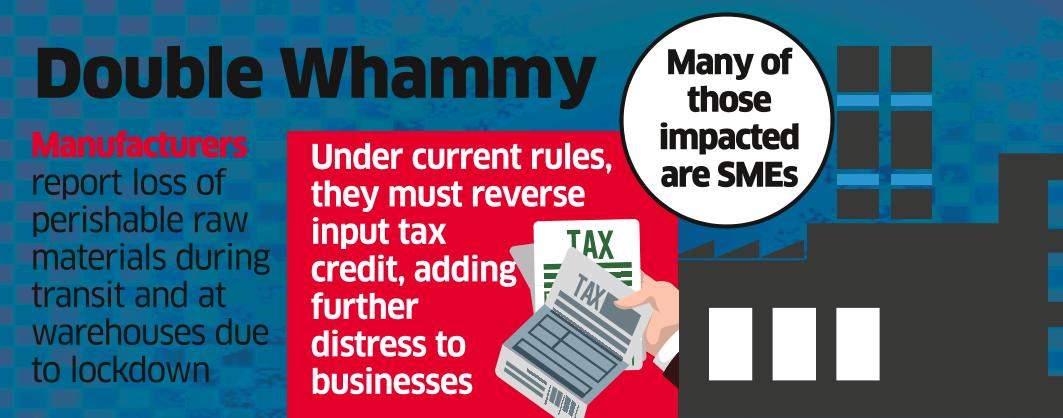Companies that have suffered damage to raw material and finished products during the Covid-19 lockdown now face a double whammy of sort — on top of the loss of the goods, they cannot claim input tax credit.
Input tax credit under the goods and services tax framework allows businesses to set off tax paid on raw materials or input services against future tax liabilities. But this benefit is not available on goods that are stolen, lost, destroyed or distributed as free samples.
Manufacturers have reported loss of perishable raw materials during transit and at warehouses since the country went into a lockdown. They now must reverse the input tax credit under the current rules, adding further distress to the businesses which are already struggling due to stalled activities.
According to tax experts, the tax on raw materials was as high as 18% and the cumulative input tax credit on goods destroyed, lost or stolen during the pandemic could run into hundreds of crores. Many of those impacted are small and medium enterprises.
Businesses — especially in sectors such as food processing, leather, textiles, grocery and farm items where the goods are highly perishable — are facing a situation where the inventory loss is now compounded with reversal of input tax credit that will lead to a higher tax outgo, say tax experts.

“The provision obligating input tax credit reversal in cases of writing off/destruction of goods becomes all-important in the current Covid-19 scenario for limited shelf-life products,” EY India tax partner Abhishek Jain said. “Most businesses have already pleaded to the government for a relief on this additional financial burden and are looking forth to a fiscal relief on this soon.”
The section that denies the input tax credit has been litigated against in the past and the cases are still pending in courts. Tax experts expect more companies to challenge it now.
“The restriction with respect to the destroyed goods is in section 17(5)(h) of the CGST Act and this provision of blocked credit has already been challenged by us in the writ court. Blocked credits will have to be seen harmoniously with the objectives of GST and whether the procurements are intended to be used in the course or furtherance of business,” said Abhishek A Rastogi, partner, Khaitan & Co.
Source : Times of India
